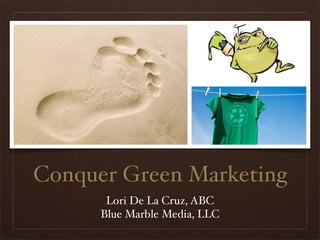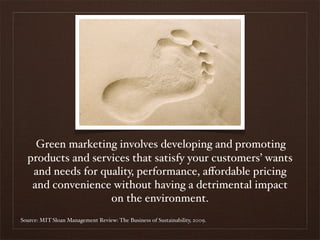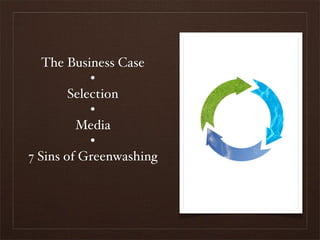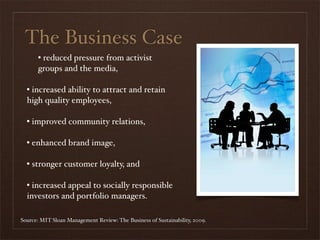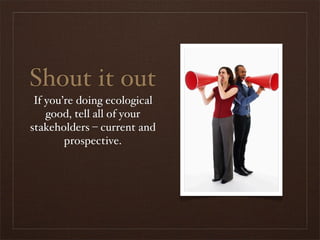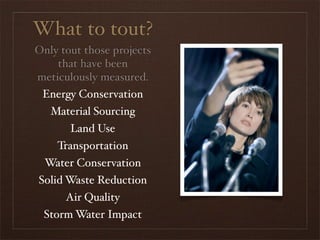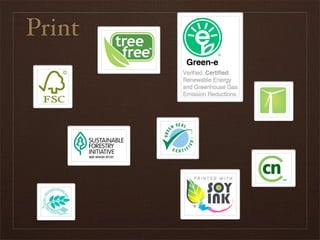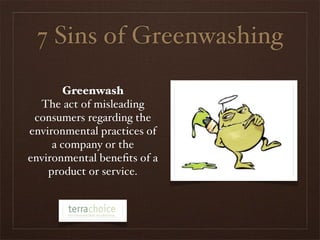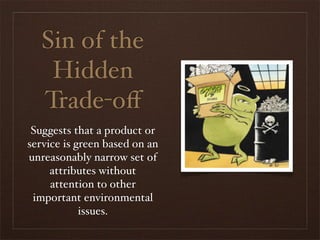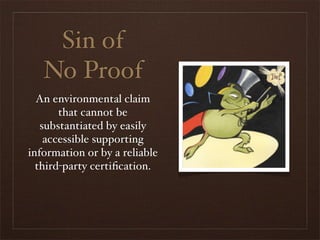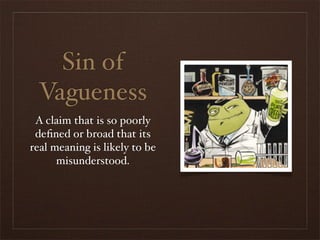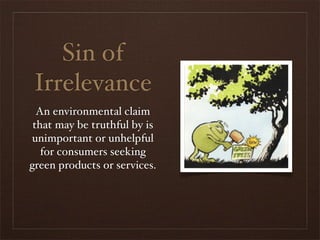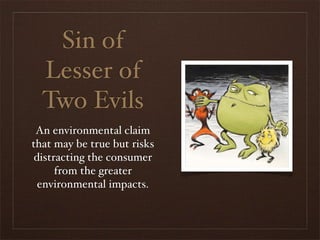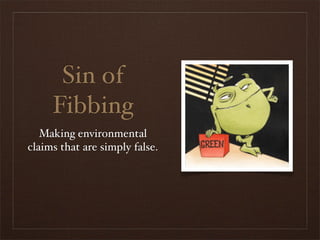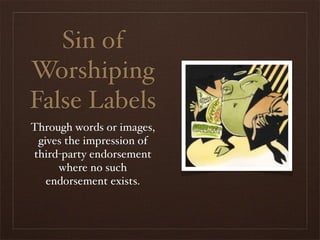Conquer Green Marketing
- 1. Conquer Green Marketing Lori De La Cruz, ABC Blue Marble Media, LLC
- 2. Green marketing involves developing and promoting products and services that satisfy your customersÔÇÖ wants and needs for quality, performance, a´¼Çordable pricing and convenience without having a detrimental impact on the environment. Source: MIT Sloan Management Review: The Business of Sustainability, 2009.
- 3. The Business Case ÔÇó Selection ÔÇó Media ÔÇó 7 Sins of Greenwashing
- 4. The Business Case ÔÇó reduced pressure from activist groups and the media, ÔÇó increased ability to attract and retain high quality employees, ÔÇó improved community relations, ÔÇó enhanced brand image, ÔÇó stronger customer loyalty, and ÔÇó increased appeal to socially responsible investors and portfolio managers. Source: MIT Sloan Management Review: The Business of Sustainability, 2009.
- 5. Shout it out If youÔÇÖre doing ecological good, tell all of your stakeholders ÔÇô current and prospective.
- 6. What to tout? Only tout those projects that have been meticulously measured. Energy Conservation Material Sourcing Land Use Transportation Water Conservation Solid Waste Reduction Air Quality Storm Water Impact
- 8. Print
- 9. Electronic
- 10. 7 Sins of Greenwashing Greenwash The act of misleading consumers regarding the environmental practices of a company or the environmental bene´¼üts of a product or service.
- 11. Sin of the Hidden Trade-o´¼Ç Suggests that a product or service is green based on an unreasonably narrow set of attributes without attention to other important environmental issues.
- 12. Sin of No Proof An environmental claim that cannot be substantiated by easily accessible supporting information or by a reliable third-party certi´¼ücation.
- 13. Sin of Vagueness A claim that is so poorly de´¼üned or broad that its real meaning is likely to be misunderstood.
- 14. Sin of Irrelevance An environmental claim that may be truthful by is unimportant or unhelpful for consumers seeking green products or services.
- 15. Sin of Lesser of Two Evils An environmental claim that may be true but risks distracting the consumer from the greater environmental impacts.
- 16. Sin of Fibbing Making environmental claims that are simply false.
- 17. Sin of Worshiping False Labels Through words or images, gives the impression of third-party endorsement where no such endorsement exists.
- 18. Thank You! Lori De La Cruz, ABC Blue Marble Media, LLC 817-233-4093 Lori@BlueMarbleMedia.net

